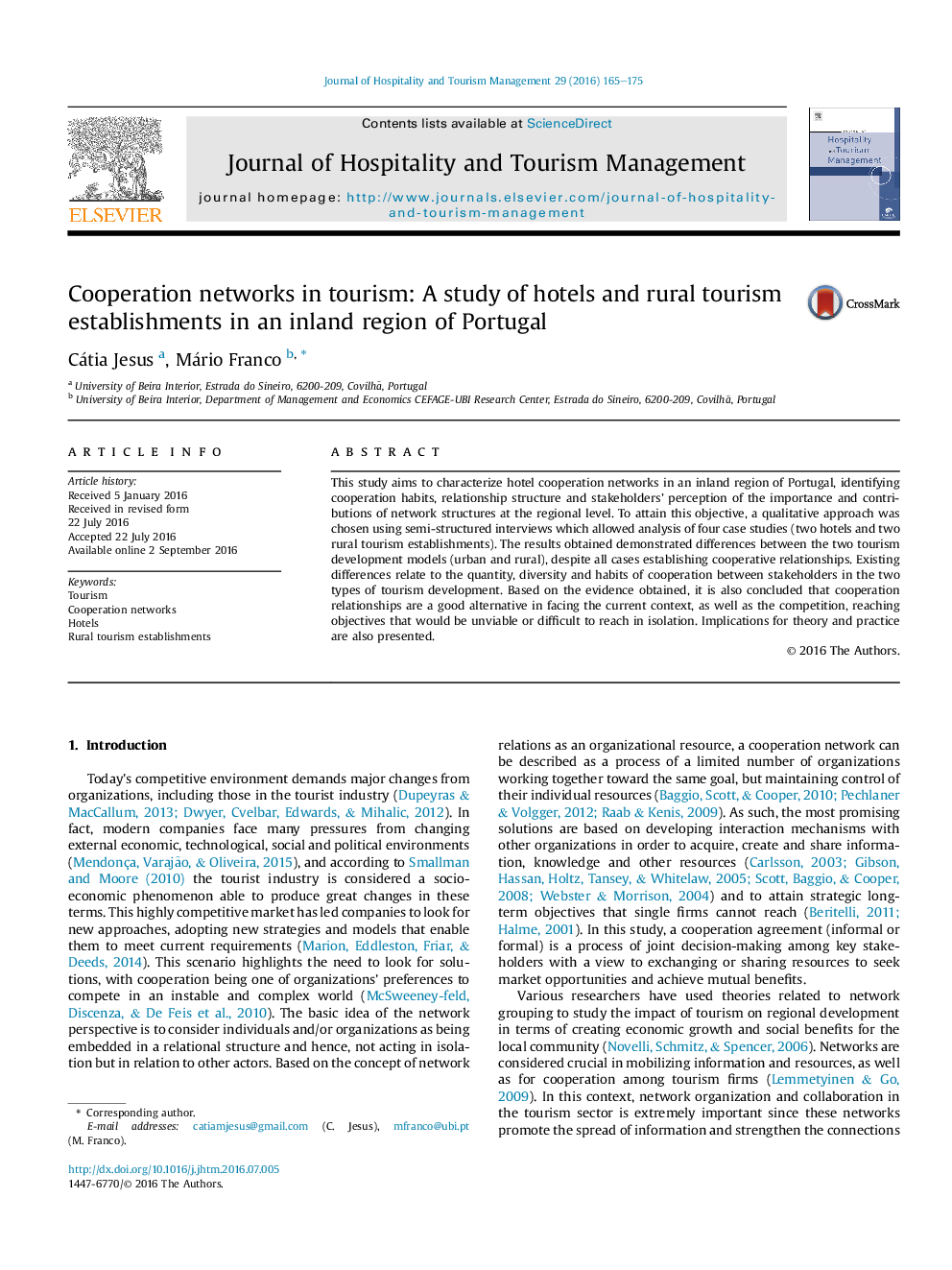| Article ID | Journal | Published Year | Pages | File Type |
|---|---|---|---|---|
| 7420450 | Journal of Hospitality and Tourism Management | 2016 | 11 Pages |
Abstract
This study aims to characterize hotel cooperation networks in an inland region of Portugal, identifying cooperation habits, relationship structure and stakeholders' perception of the importance and contributions of network structures at the regional level. To attain this objective, a qualitative approach was chosen using semi-structured interviews which allowed analysis of four case studies (two hotels and two rural tourism establishments). The results obtained demonstrated differences between the two tourism development models (urban and rural), despite all cases establishing cooperative relationships. Existing differences relate to the quantity, diversity and habits of cooperation between stakeholders in the two types of tourism development. Based on the evidence obtained, it is also concluded that cooperation relationships are a good alternative in facing the current context, as well as the competition, reaching objectives that would be unviable or difficult to reach in isolation. Implications for theory and practice are also presented.
Related Topics
Social Sciences and Humanities
Business, Management and Accounting
Tourism, Leisure and Hospitality Management
Authors
Cátia Jesus, Mário Franco,
